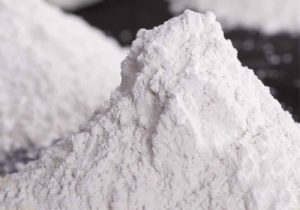
CP-150 Organophilic Clay
CP-150 Organophilic Clay is a self-activating organoclay that disperses easily and performs well in diesel, low aromatic mineral oil, modified vegetable oil, and synthetic base fluid formulations.
Oil thickener: It is a oil gelling agent for paints,coatings,inks,grease,as a thickening agent.
Looking for a paint thickener that works with any type of paint?
Our bentonite clay-based thickener is ideal for all types of paints and is simple to disperse. Whatever the consistency of your paint, you won’t have any trouble getting the gel to mix in.

CP-150 Organophilic Clay is a self-activating organoclay that disperses easily and performs well in diesel, low aromatic mineral oil, modified vegetable oil, and synthetic base fluid formulations.

CP-992 Organophilic Clay, the wet process improved viscosifier and gelling agent . It is a rapidly dispersing.

CP-982 Organophilic Clay is an amine treated bentonite with a moderate temperature performance.
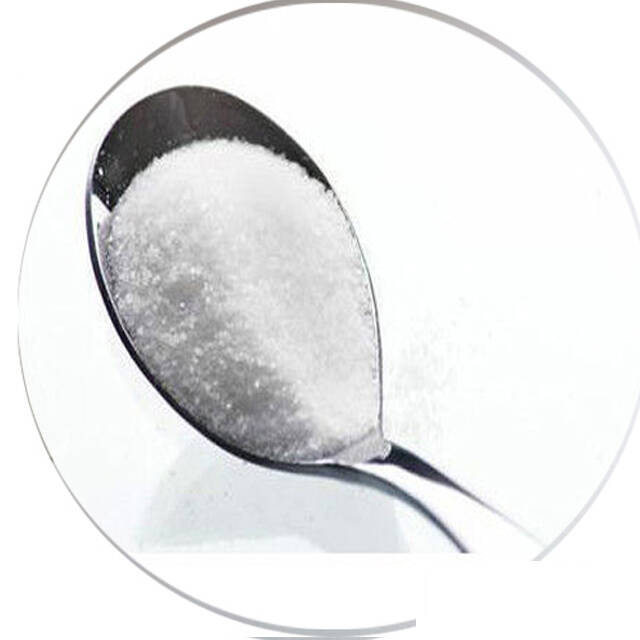

The CP-MPS rheology modifier is a type of organo clay rheological additive that is used in solvent and resin systems ranging from non-polar to high polarity.

CP-10 organoclay is a rheological additive made of organoclay. It is used in non-polar to moderately polar aliphatic and other solvent systems
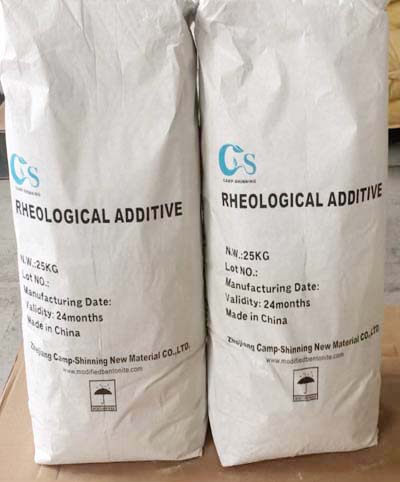
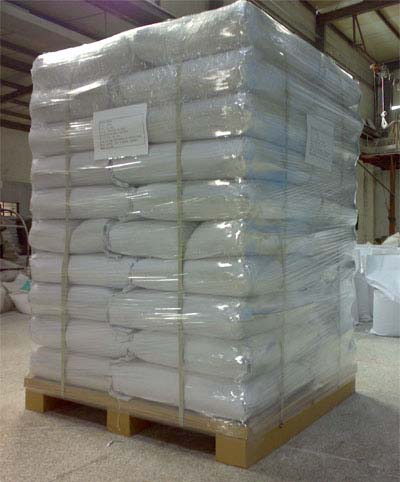
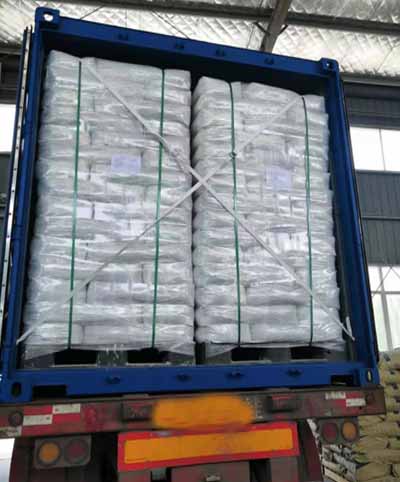
Organoclay Supplier / Manufacturer :
Internet address: https://www.rheologymodifiers.com/
Email address: [email protected]
Whatsapp / Wechat: +86-13185071071
Organophilic Clay Supplier / Manufacturer :

CP-WBS Rheology Modifier is rheological modified bentonite. It is mostly employed in water-borne systems.

CP-EW Organoclay for Water Based paint. It is primarily employed in water borne paint systems,such as latex paint. So it is a good water based additive in paints,coatings,grease etc.

CP-EWS Modified bentonite It is employed in a water-borne coatings system. CP-EWS organoclay outperforms CP-EW in terms of thixotropy, transparence, and dispersion.


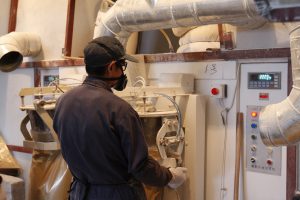
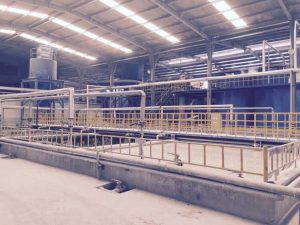

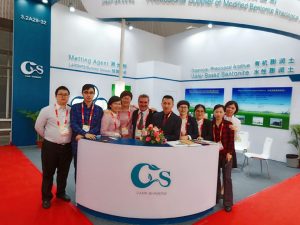
The Organoclay bentonite | Organophilic clay -specialized Zhejiang Camp-Shinning New Material CO.,LTD. and Hangzhou Camp-Shinning CO.,LTD. are subsidiaries of Camp-Shinning.
Camp-shinning concentrated on high value-added, high-technology organo bentonite series products, particularly in research, development, manufacturing, and sales of organic (solvent based organoclay) and inorganic bentonite (water based organoclay).
Our Organophilic bentonite clay finds widespread application in oil drilling mud, paint, coating, lubricating grease, adhesive, construction mortar, cosmetics, and waste water treatment, among other applications. A group of world-class professional users and distributors, such as SUN CHEMICAL,,SIEGWERK,LEHMANN &VOsS, and others, have acknowledged our dependable quality.
Current annual production of organic bentonite clay | organoclay is 20,000 metric tons, while refined bentonite production is 15,000 metric tons.
Our ISO 9001 quality system certification and IS014001 environmental management system certification, as well as our own mine with superior ore quality and production of proprietary technology, ensure the long-term quality and supply stability of our Organoclay bentonite | Organophilic clay.
Our mission is to provide users with superior Organoclay bentonite | Organophilic clay and services and to collaborate with them to achieve success and glory.
Internet address: https://www.rheologymodifiers.com/ and email address: [email protected]
Whatsapp / Wechat: +86-13185071071
Organoclay | Organophilic Clay CP-2 also named amine treated Bentonite.
In diesel oil based fluids,organophilic clay viscosifier CP-2 are used to increase carrying capacity and suspension properties, providing support for weight materials and improved cutting removal. Organophilic bentonite also aids in filter-cake formation and filtration control.
Properties
Composition Organically modified bentonite clay
Physical appearance Off white to tan free-flowing powder
Moisture content (105℃,2hr) ≤4%
Particle size (<76μm or 200mesh) ≥95%
Specific Gravity 1.6-1.8
Advantages
Effective viscosifier and gellant
Aids control of fluid loss to the formation
Increases emulsion stability
Improves cuttings carrying and hole cleaning capacity
Suspends weighting materials and other solids
Confers temperature stability to the fluid
Application
Base oil:
Diesel Oils
Crude Oils
Mineral Oils
Synthetic Oil
Viscosifying drilling Fluids:
Oil based drilling fluids
Invert emulsion fluids
Workover fluids
Completion fluids
Casing packs
Packer fluids
Spotting fluids
Package
Organoclay | Organophilic Clay CP-2 is packed in 50lb(22.7kg) or 25kg/bag or customized,multi-wall paper sacks or Kraft paper bag with PE liner or customized.
Storage
CP-2 Store in a dry, well-ventilated area with temperature of 0℃-30℃. Keep container closed. The quality guarantee period is 24 months.
Notice
The information on use is based on data which are believed reliable, but any recommendation or suggestion made is without guarantee or warranty, since the conditions of use are outside our control. All products are sold on the conditions that purchasers shall make their own tests to determine the suitability of such products for their purpose and that all risks are assumed by user. We disclaim any responsibility for damages resulting from careless or improper handling or use. Nothing herein is to be taken as permission, inducement or recommendation to practice any patented invention without a license.
Internet address: https://www.rheologicaladditive.com/ and email address: [email protected]
Whatsapp / Wechat: +86-13185071071
One of the best materials for eliminating oil from water-based emulsions is organoclay. Based on its capacity to absorb oil, this material can efficiently remove all of the oil in a water-based emulsion. A powdered organoclay is diluted incrementally into the effluent during the procedure. Within 15 to 30 minutes, the first stage of absorption can be finished. It can take longer to finish the second stage. Several characteristics exist in organoclay bentonite. Among them, it has a high viscosity and is soluble in hydrocarbon solvents. It can also connect chains of quaternary ammonium hydrocarbons. It also possesses fantastic thixotropic qualities that stop the precipitation of inorganic fillers. Additionally, pharmaceutical and industrial industries frequently use bentonite. It can be utilized as a paste thanks to its adsorption and absorption capabilities. A thickener made of minerals called organoclay is used in aqueous slurries. This clay, which comes from bentonite clay, has a high cation-exchange capacity. Bentonite, however, has little impact on the sensory qualities of wines that have been treated. Bentonite’s main downsides include color loss for red wines and a lot of sediment during racking. Small-scale lab experiments are used for the majority of bentonite investigations in order to establish the ideal dosage. Organoclay works well as a flocculating agent in addition to being a good agglomerating agent. This is particularly helpful for cleaning up oil spills because it may be done on-site or in containment tanks. The oil that has aggregated can then be gathered and processed chemically. Properties This investigation tested the ability of Organoclay bentonite-based oleogels to thicken at varied shear rates. It was discovered that the oleogels have infinite viscosity at greater shear speeds. Additionally, it was discovered that their thermal degradation process had two stages, the first of which involved the thermal decomposition of the vegetable oil and the second of which involved the volatilization of nanoclay. Additionally, the concentration of the thickening agent affected the thickness of the oil-bentonite gels. Additionally, they exhibited rheological characteristics similar to a conventional bentonite grease. The effectiveness of Organoclay bentonite-based oleogels in various oil-based lubricants was assessed in this study. High melting and dropping points of organoclay greases are necessary for regulating the rheological characteristics of oil-based drilling fluids. However, compared to hydrocarbon oils, Organoclay’s rheological characteristics are not as stable. Temperatures can fluctuate between four degrees Celsius and 65 degrees Celsius while deep-water drilling is being done. Rheological qualities that are stable are essential in this industry. Clay and organic salts can be combined to create organoclay by heating the mixture to between 20 and 100 degrees Celsius. This procedure is best performed at a temperature of 35 degrees Celsius. After that, the clay is washed and filtered to get rid of any remaining impurities. For best results, repeat the same procedure multiple times or add the organoclay gradually over time. Uncertainty surrounds the swelling and dispersion characteristics of organoclay in organic solvents. However, it appears that the interaction between the surfactant and the solvent is what determines how well organoclay disperses. In addition, the solvent’s polarity and the amount of shearing time are two other crucial considerations. Application There are many uses for organoclay bentonite oil-thickening chemicals in the oil industry. These substances can be used in a variety of locations and are simple to remove without polluting the environment. Additionally, heavy metals can be effectively eliminated from the solvent using bentonite organoclays. High rheological qualities can be found in the natural material organoclay bentonite. It can make liquids, emulsions, and gels thicker. It is compatible with all varieties of water-based paints and can be used in a wide range of water-based coatings. In industrial applications, the usage of organoclay clay is growing and becoming more widespread. Natural oils are replacing petroleum derivatives in several industries and producing more efficient goods. To give a system containing natural oils the necessary viscosity, organoclay compounds must be used in significant amounts. For such systems, it is crucial to locate a reliable thickening. Organoclay compounds have been used to block drains and thicken water bodies. However, the efficacy of this technique varies depending on the application. The ratio of quaternary amine in an organoclay compound and the adsorption technique employed determine how efficient the compound is. Compounds that thicken oil with organoclay bentonite are becoming more prevalent on the market. Organoclay thickening compounds will improve your products whether your application demands for natural oils, biodegradable oils, or manufactured emulsions.
Organoclay Supplier / Manufacturer :
Internet address: https://www.rheologymodifiers.com/
Email address: [email protected]
Whatsapp / Wechat: +86-13185071071
Organophilic Clay Supplier / Manufacturer :

CP-EDS modified bentonite is a kind of organo clay rheological additive. It is used in systems of medium polarity and high polarity system.

CP-180 organoclay is an organo clay rheological additive (modified montmorillonite) designed specifically for use in solvent-based systems

CP-34 organoclay is a modified bentonite that has been specifically designed for use in solvent-based systems.
Oil thickener , oil gelling agent,organoclay